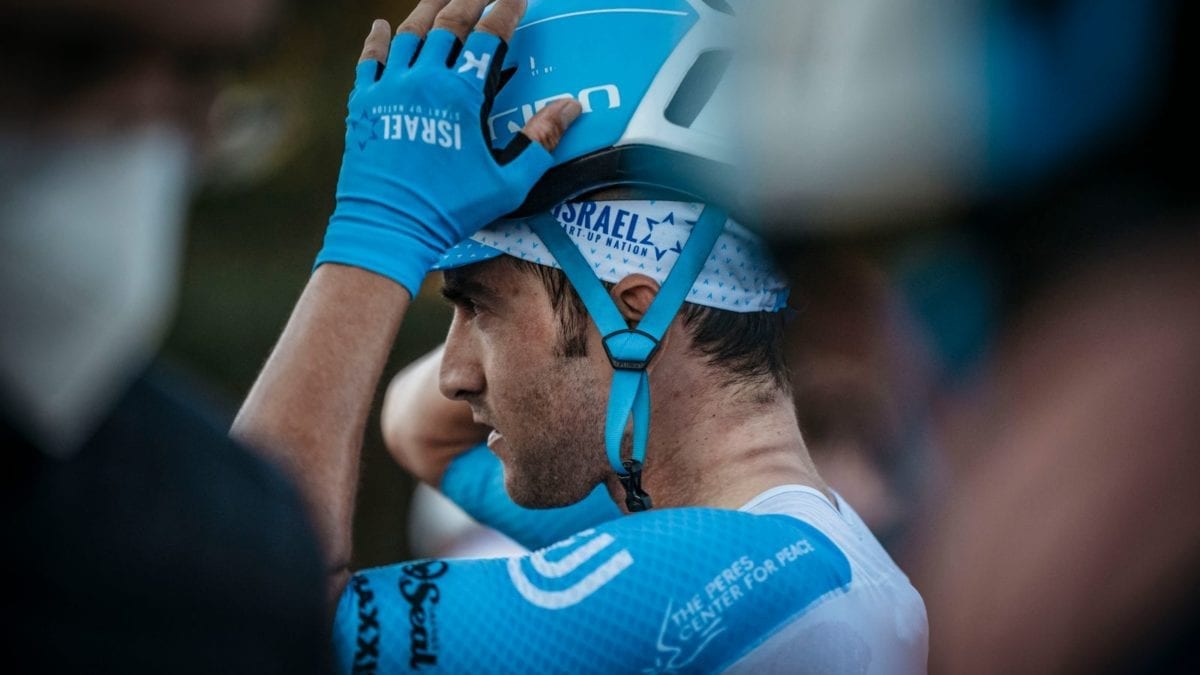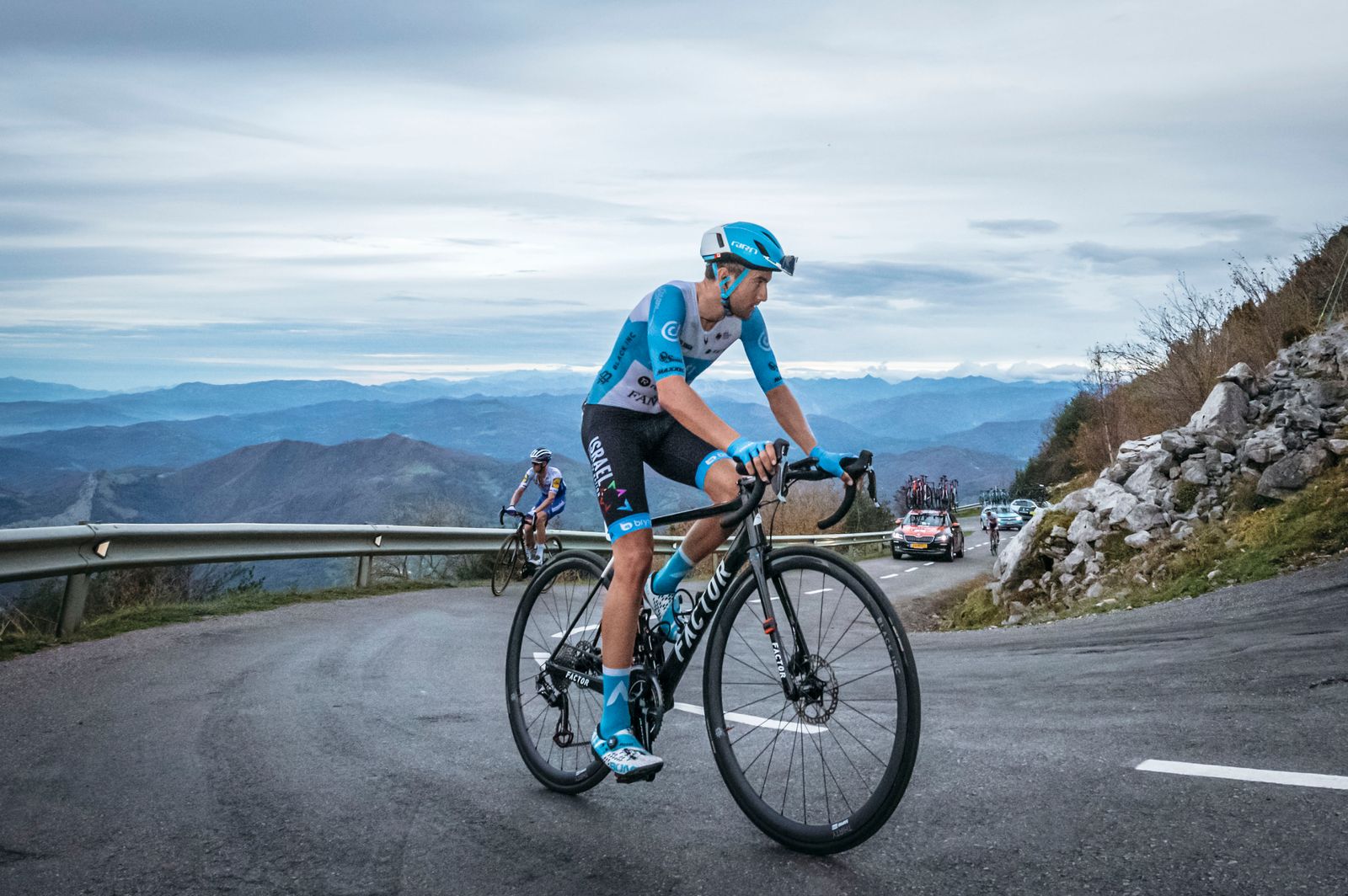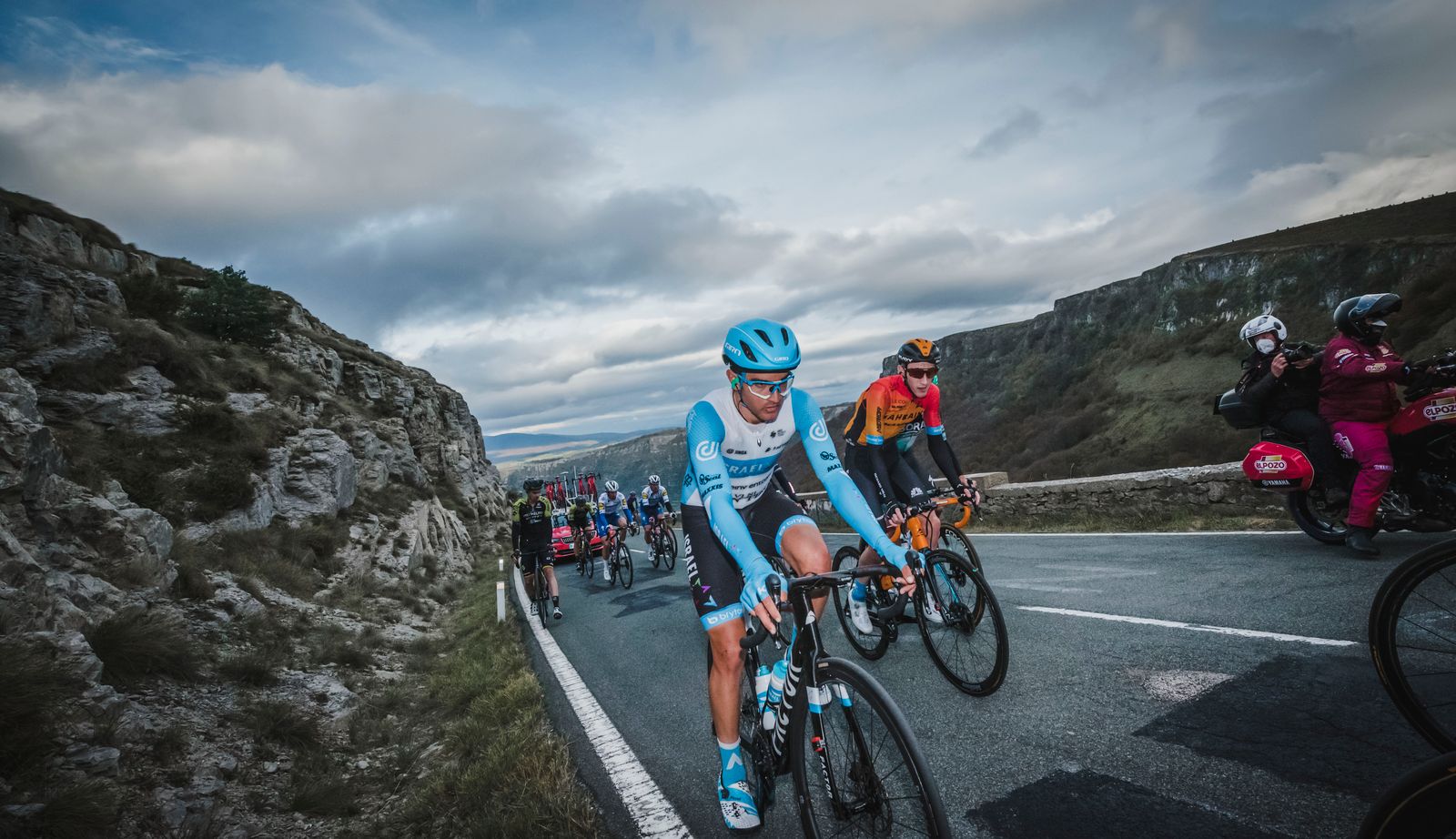Pro cyclist James Piccoli didn’t have a coach until 2020
The Canadian Israel Start-Up Nation rider used his own training plan to make it to a WorldTour team
 Photo by:
Noa Arnon
Photo by:
Noa Arnon
The most Canadian WorldTour team is Israel Start-Up Nation (ISN). That might sound like a far-fetched claim. After all, the team is not called Canada Start-Up Nation, is it? But join us and team sponsor Maxxis tires as we take a close look at ISN and all its Canadian connections.
James Piccoli can take all the credit for developing himself into a WorldTour level cyclist. This year—when he joined Israel Start-Up Nation—was the first time the Quebecois cyclist experienced having a coach. Piccoli’s non-traditional Montreal-based path to pro cycling was built on thousands of self-motivated Mount Royal rides and tested on local Seaway time trials. Despite starting his career later than some, he was able to quickly rise through the ranks of professional cycling, fuelled by motivation, research and a willingness to experiment with his training—and he’s just getting started.
Starts and stops
Though he is now moving steadily in an upward trajectory, Piccoli’s cycling career almost ended before it began. The 29-year-old started riding in his early teens, racing his father up the steep roads of Montreal’s Mount Royal. At 13 he felt confident enough to try racing and, in his own words: “I was very bad.”
“I was last all the time and I didn’t have any fun,” he says. “I didn’t like all the crashing, so I retired from racing quite early, but I stayed on the bike for training, but I still enjoyed riding around town and trying to beat my dad up the hill.”
Though he never stopped riding up Mount Royal, Piccoli only started to take training more seriously again when he began looking into time trial bikes. “In university, when I was around 20-21, I was studying mechanical engineering,” he says. “Time trial bikes really interested me—I was interested in the technical side of it—mapping out how fast you can go with aerodynamics and so on. I said to myself ‘maybe I could start training for some time trials and see if I could go fast.’”
“From then on that’s been the dream.”
Time trials and learning
“There’s pretty much one piece of road in Montreal where you can bike fast in a straight line,” says Piccoli. Montreal’s Seaway is home to a strip of flat road, surrounded on either side by the St. Laurent and known officially as the Petite Voie du Fleuve. It was there that Piccoli got his start racing in a local time trial series (it was also there that he met the owner of his future team, Sylvan Adams).
RELATED: The two Canadians behind one of the world’s biggest cycling teams
Until this year Piccoli built his own personalized racing, training and nutrition plans using research he pulled from a number of sources. “I like to read about physiology and training, with studies on the internet and books too,” he says. “But I also experiment by myself to see what I like and what I find works for me. There was a lot of trial and error involved—trust me.”

In 2014 Piccoli joined his first continental team, Amore & Vita – Selle SMP. His future Israel Start-up Nation teammates Mike Woods, Alex Cataford and Mihkel Räim also raced for the team that year. He then spent half a year with H&R Block Pro Cycling and 2017-2019 racing for American continental team Elevate – KHS Pro Cycling.
Continental differences
In 2018 and 2019, while he was still with Elevate – KHS Pro Cycling, Piccoli racked up some of the best results of his career, finishing second in the GC at the Tour de Taiwan, Tour de Beauce, Tour of the Gila and Tour of Utah. “Cycling in the continental ranks can be quite difficult,” says Piccoli. “You can kind of make a living, but to be honest it’s not really sustainable long-term.”
Although he had been chasing the goal of racing on a WorldTour for five years, he only accepted that he would be a professional cyclist when the ink on his contact dried. “I was getting better results and talking to people, and so-on and so-forth,” he says, “but you never really know with cycling until it’s on paper. I swear I only really had the thought that I would be cycling professionally when I signed my name at the bottom of the contract with ISN.”

Like his Canadian teammates, Piccoli thinks some of his doubts about making it to the WorldTour come from developing as a cyclist in a North American environment. “There’s less cycling racing culture in Canada,” he says. “Just being here versus in Europe it’s like night and day with the number of fans and cyclists on the road. It’s understandable, that being from Canada and less exposed to that culture you’ll see it as less of a career option.”
RELATED: Alex Cataford on getting into professional cycling as a Canadian
Making the jump
Despite coming from Canada, Piccoli made a big jump going directly from continental to WorldTour racing. Paulo Saldanha, the performance director at ISN, thinks he can handle it. “James is super talented— he has great numbers and great physical capacity,” says Saldanha. “So most of the work that I’ve done this year with James has been relearning how to race a WorldTour level. How to move through the peloton, how to surf the front, how to smell out when a brake is dangerous or not, where to be when the wind is crazy, how to navigate super sketchy technical downhills at extremely high speeds. These are all things he’s never really encountered—all in the confines of 150 to 200, rider packs at a very high level.”
“Those pieces are really tough to process and he has to build them into his success equation,” he says. “I think that he will, I mean, that’s why we took him on. We took him on for a few years to give him a chance to show his potential on the bike.”

Though his first pro season was a weird one, Piccoli still had the chance to race the Vuelta a España this year, along with some stage races, and one day classics. He also took full advantage of the indoor trainer season, winning a stage of Zwift’s Tour for All.
RELATED: The two Canadians behind one of the world’s biggest cycling teams
Familiarity and 2021
He also feels that having a growing Canadian contingent on the team is beneficial. “Canadians are easy to get along with,” says Piccoli. “They’re pretty polite and nice and it’s really good to have that as one of the main cultures on the team. We have a pretty international team—guys from all different cultures, religions and nationalities—it’s nice to have a little familiarity.”
Piccoli says he sees a lot of potential for the team in the 2021 season. “The team’s gonna take a real step up next year in terms of riders that they’ve signed, that’s clear for everyone,” he says, referring to new teammates such as Mike Woods and Chris Froome. “The team is only going to grow with the caliber and quality of riders that are coming, which is great. This team makes constant improvements and I think next year will only get better.”
Constantly working towards improvement seems to be central to Piccoli’s character. He takes a researched approach to cycling, and always has his eye out for fresh ideas. “There’s a lot of info out there,” he says, “but an athlete just has to be willing to try out new things to see what works.”

